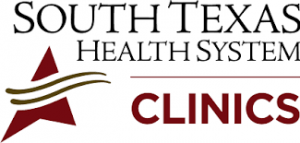
Augustine George, MD, FACC
Cardiology
During the holiday season, it can be difficult to prioritize your health and slow down when you are not feeling well. However, it’s an important time to keep heart health and cardiovascular awareness at the top of your to-do list.
In fact, the American Heart Association® found that cardiac mortalities spike around the holidays. Research suggests this may be due to abrupt changes in traveling, eating, drinking, exercising and vacationing.
Below, South Texas Health System® Clinics’ Cardiologist Augustine George, MD, FACC, answers some common questions about the health of your heart, including understanding risk factors and recognizing symptoms to help you stay healthy and enjoy the holiday season.
Q. Why is it important to maintain a healthy heart?
Of course, your heart is a critical organ – the rest of your body depends on it. It is at the center of your cardiovascular system and is responsible for pumping blood around the body to send oxygen and nutrients where they are needed and to carry away unwanted waste products. Understanding the health of your heart is important because heart disease is the No. 1 cause of death in the United States, according to the American Heart Association. The heart is the organ that keeps your body running. Recognizing that can inspire you to keep it healthy.
Q. How do I know if I am at risk for cardiovascular disease?
Ask your doctor about cardiovascular health screening tests. The most important indicators for cardiovascular health are blood pressure, cholesterol and blood sugar levels. High blood pressure may indicate that your heart is working too hard to pump blood to your body, potentially damaging your blood vessels. High blood sugar can also contribute to damage to blood vessels. Meanwhile, high cholesterol indicates a risk of fatty deposit buildups in your arteries, which can lead to blockages. Family history and body weight are also indicators of risk factors for cardiovascular disease. Talk to your doctor to help monitor and manage these risk factors.
Q. What are some steps I can take to help maintain my heart health during the holiday season?
While the holiday season calls for tasty indulgences, there are some good alternatives you can choose to make your festive menu nutritious, low in cholesterol and heart conscious. Include vegetables, fruits and whole grains in your recipe ingredients. Staying active is also important. Dress for the weather if exercising outdoors, maintain your regular exercise routines, and explore seasonal activities and sports. Of course, consult with your primary care physician before starting any new exercise routine.
Q. What are some warning signs of a heart attack?
One mistake people make is delaying medical treatment when they experience potential heart attack symptoms. This is especially common during the holiday season. Most heart attack symptoms start slow and mild. If you experience discomfort in your chest or upper body — including your arms, back, neck, jaw or stomach — it may be an early sign of a heart attack. Shortness of breath, cold sweat, nausea and lightheadedness are common symptoms of a heart attack.
Swift action can save lives. Call 911 if you experience any of these heart attack signs.
On average, someone In the United States has a heart attack every 40 seconds. You can reduce your risk through screenings and lifestyle changes. During this season of giving and reflection, remember that your heart is a gift to be cared for all year round.
Dr. Augustine George
Cardiology
South Texas Health System Clinics
4302 S. Sugar Road, Suite 200
Edinburg, TX 78539
To schedule an appointment, go to sthsclinics.com or call 956-630-5522.
Virtual Visits Available
Dr. George is board certified in Internal Medicine, Cardiovascular Disease, Interventional Cardiology, Echocardiography and Nuclear Medicine and provides comprehensive care for cardiovascular health and treatment. He is a Fellow of the American College of Cardiology.
Accepts Medicare, Medicaid and most medical insurance plans.
For language assistance, disability accommodations and the nondiscrimination notice, visit our website.





